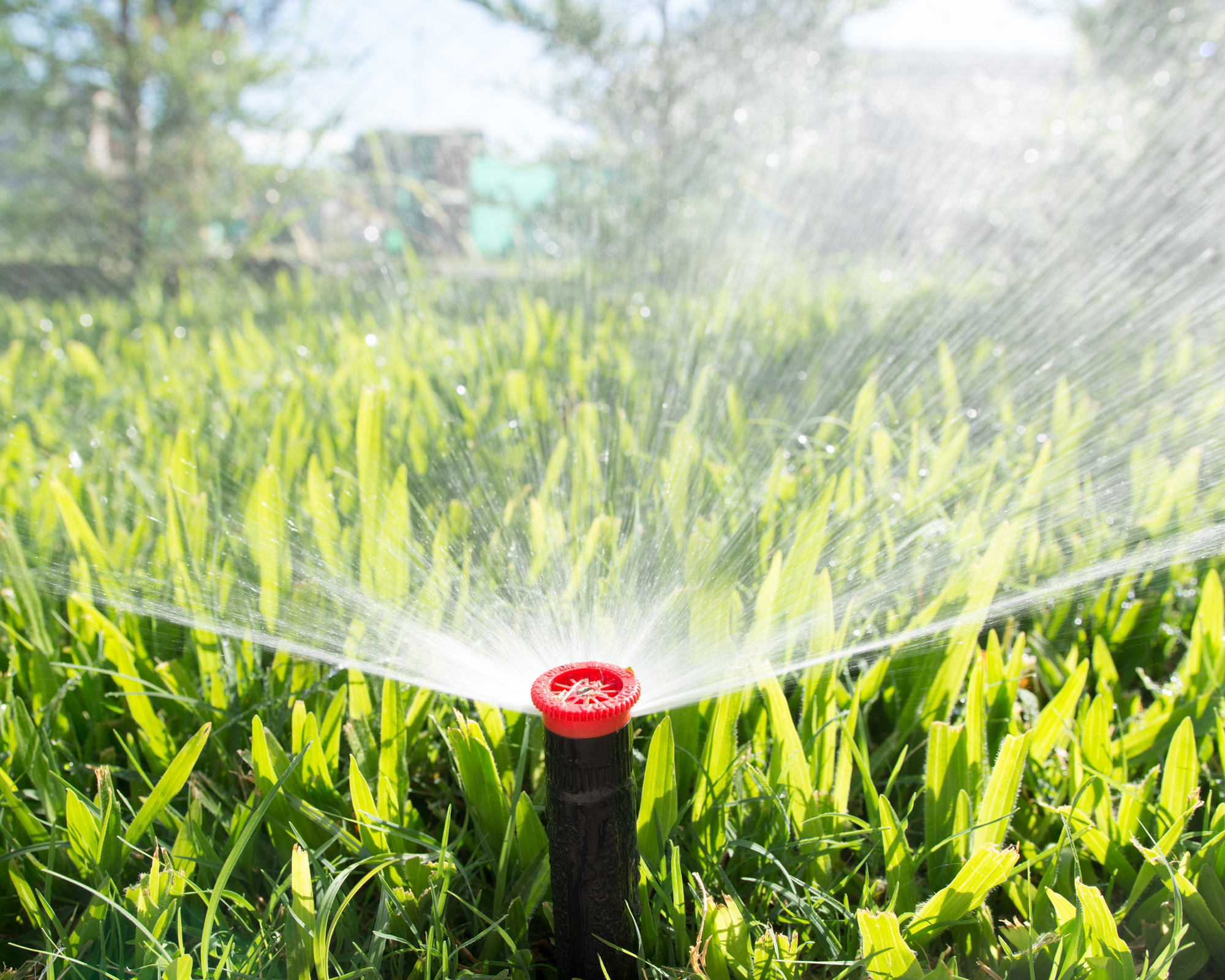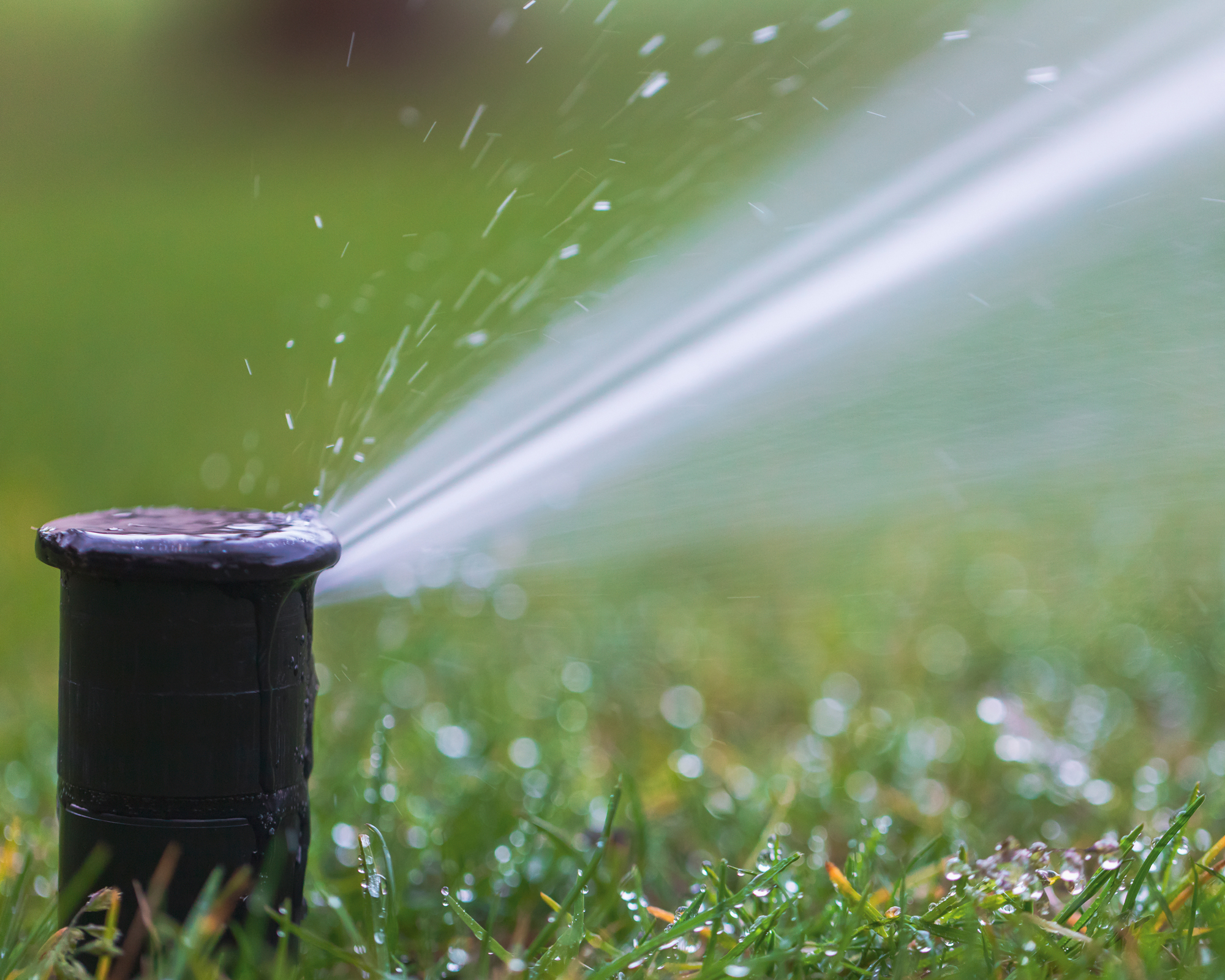When to blow out sprinklers – expert advice
Want to know when to blow out your sprinklers? Here's what the experts say

Wondering when to blow out sprinklers before winter? Knowing when to winterize your sprinkler set-up is essential for keeping your garden irrigation system in good working order and preventing any of it from freezing and bursting during the coldest months.
Even the best garden sprinkler may let you down if you don't do this essential maintenance task. We've asked irrigation and lawn professionals when the best time to blow out sprinklers is, depending on where you live.
When should you blow out sprinklers?
Trevor Lively, President of the Blue Jay Irrigation company, explains that the best time to blow out sprinklers will depend on where you are located. He says, 'In the northern climate regions like New York, Pennsylvania, Vermont, Minnesota, Illinois, Kansas, Michigan, New Jersey and others, the best time to blow out sprinklers is the month of October.'
In fact, October generally is the time to start winterizing your sprinkler system, although Trevor cautions against turning them off too early if you live in a hotter climate. This would 'cause your lawn to lose precious water it needs to get prepared for the winter.'
If you want a more general guideline, Jeremy Yamaguchi, CEO of Lawn Love, says that 'you should blow out your irrigation system before the first frost of the year as part of winterizing your lawn.' Opinions vary on whether that means the first light frost or hard frost, but to be on the safe side, do it before your first frost date.

Is it easy to blow out sprinklers correctly?
While Trevor recommends hiring a professional to blow out your sprinklers, you can also do the job yourself, if you prefer.
Jeremy gives the following step-by-step template: 'Go to your main water line where your sprinklers are hooked up. Shut off the valves that prevent backflow. Carefully remove the plug on the blow-out port (it's the piece of pipe sticking out from the side) and attach an air-hose.'
Next, you'll want to 'turn your compressor on its lowest setting at first. Blow out water until your lines run clear. Turn the compressor on high for just a couple of minutes at the most so you don't damage your lines. With this done, your sprinklers should be in good condition over the winter and ready to be used in spring.'
Trevor also reminds gardeners that you need to 'make sure that the blow out zone is farthest from the mainline to ensure the adequate zone-by-zone blow out. If your sprinkler system is situated in an uneven terrain then start blowing out with the higher level zones which will be needing a higher pressure.'

If this all sounds too complicated, hire a lawn irrigation professional to do the job. But whether you pay someone to do it or decide to do it yourself, it is very important not to put it off, so that watering plants next year isn't compromised.
Don Adams, home and garden expert at Regional Foundation Repair, explains that 'it might seem complicated when you first begin to winterize your home irrigation system, but it is cheaper and less work than having to replace a whole new system six months later.'
Anna writes about interior design and gardening. Her work has appeared in Homes & Gardens, Livingetc, and many other publications. She is an experienced outdoor and indoor gardener and has a passion for growing roses and Japanese maples in her outside space.
